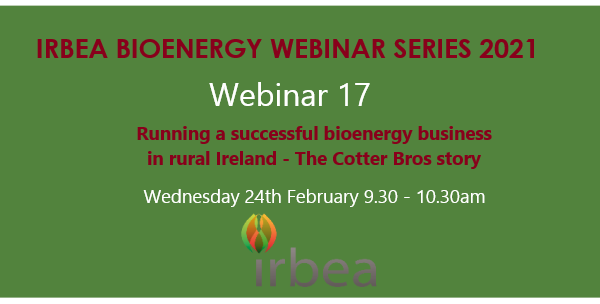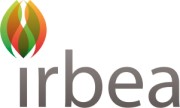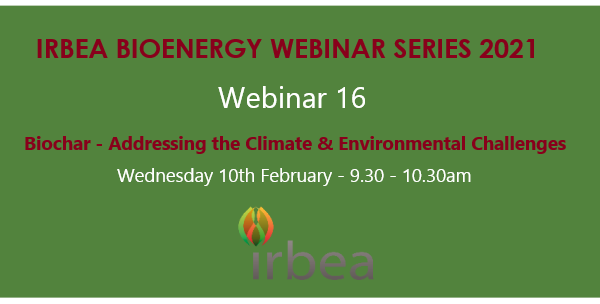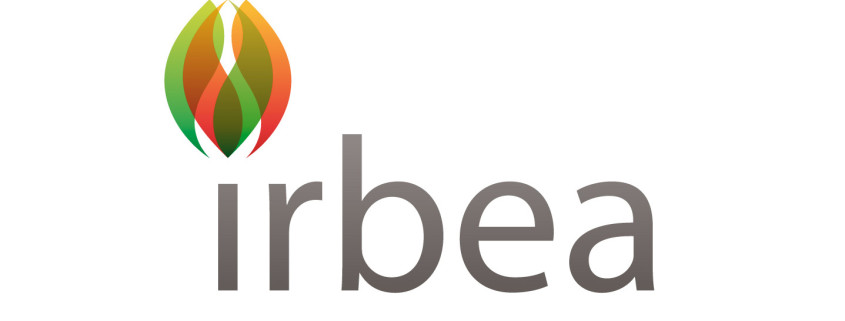Webinar 17 – Running a successful bioenergy business in rural Ireland – The Cotter Bros story
This webinar showcases the Cotter Brother’s story and how they have developed a successful firewood business in rural Ireland. ‘Cotter Bros Firewood’ are a member of the Wood Fuel Quality Assurance Scheme (WFQA) and are selling quality, certified wood products to a growing market in the Midwest. Nick Cotter presents on the future challenges and opportunities for firewood and bioenergy. He talked about how their firewood business has developed and how they are now exploring other opportunities to grow their business and contribute to the development of the rural economy in the area.
LIVE PRESENTATION HERE
Webinar Speaker
Nick Cotter

Nick started up the ‘Cotter Bros Firewood’ business with his brother Jack when they were 11 and 13 respectively. Nick is now a student of Law and Business at University College Cork, he has recently started his third company with his brother Jack, Cotter Agritech. Their Cotter Crate lamb handling system won ‘Best Agri-Engineering Start-up’ and the Alfred Cox Founder’s Perpetual Trophy for the ‘Best Overall Start-up’ at the 2019 Enterprise Ireland Innovation Awards at the Ploughing Championships. Nick and Jack also won the 2019 Engineers Ireland Student Innovator of the Year Award. They are now both working on bringing these new innovations to market as well and continually driving the firewood business.





